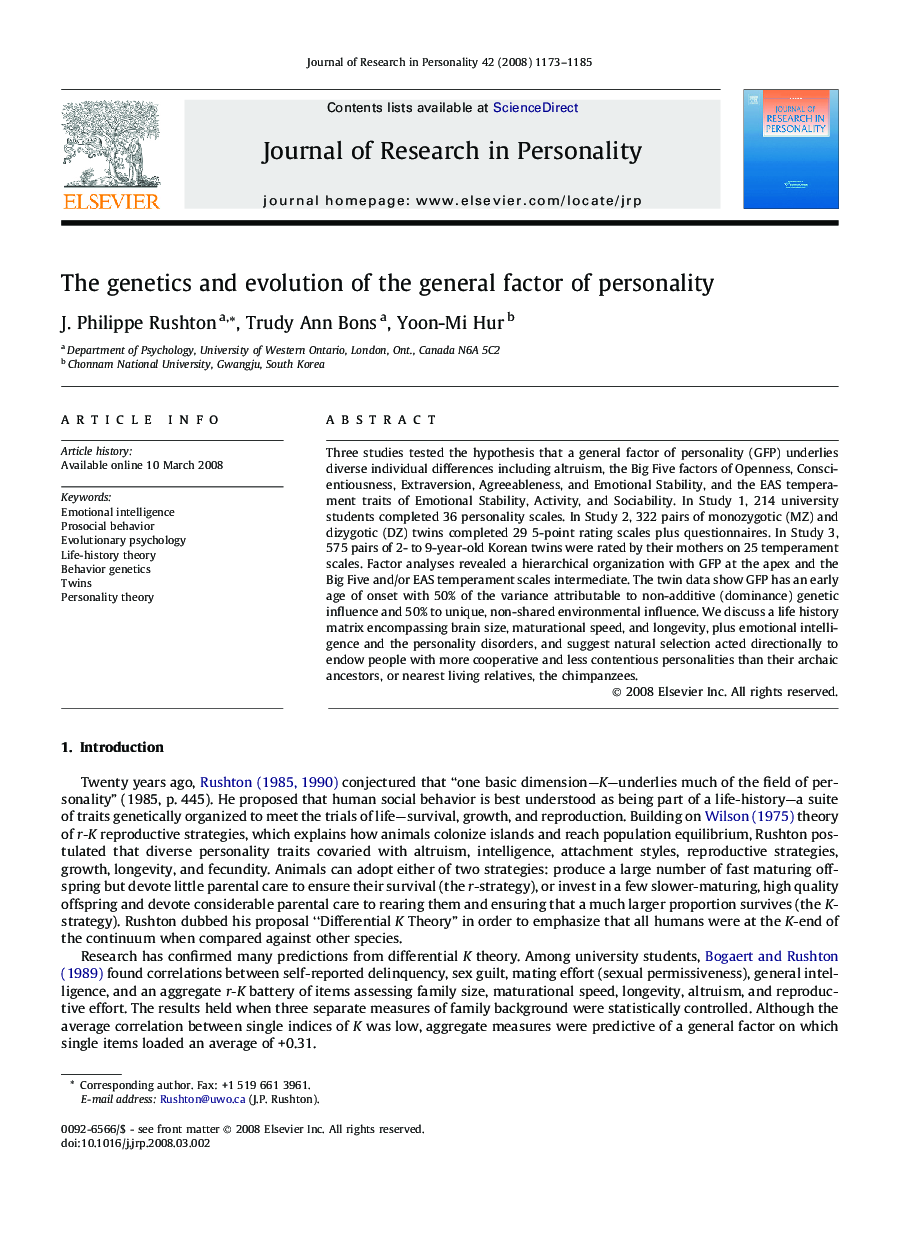| Article ID | Journal | Published Year | Pages | File Type |
|---|---|---|---|---|
| 951862 | Journal of Research in Personality | 2008 | 13 Pages |
Three studies tested the hypothesis that a general factor of personality (GFP) underlies diverse individual differences including altruism, the Big Five factors of Openness, Conscientiousness, Extraversion, Agreeableness, and Emotional Stability, and the EAS temperament traits of Emotional Stability, Activity, and Sociability. In Study 1, 214 university students completed 36 personality scales. In Study 2, 322 pairs of monozygotic (MZ) and dizygotic (DZ) twins completed 29 5-point rating scales plus questionnaires. In Study 3, 575 pairs of 2- to 9-year-old Korean twins were rated by their mothers on 25 temperament scales. Factor analyses revealed a hierarchical organization with GFP at the apex and the Big Five and/or EAS temperament scales intermediate. The twin data show GFP has an early age of onset with 50% of the variance attributable to non-additive (dominance) genetic influence and 50% to unique, non-shared environmental influence. We discuss a life history matrix encompassing brain size, maturational speed, and longevity, plus emotional intelligence and the personality disorders, and suggest natural selection acted directionally to endow people with more cooperative and less contentious personalities than their archaic ancestors, or nearest living relatives, the chimpanzees.
